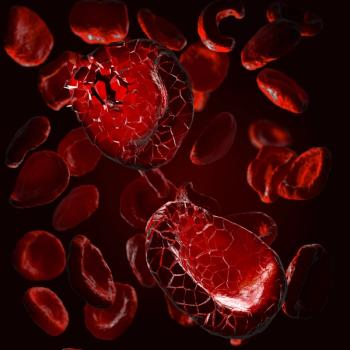
BGB-16673 antitumor activity occurred particularly among patients with BTK-resistant mutations and those with disease refractory to prior cBTK and ncBTK inhibition.

Your AI-Trained Oncology Knowledge Connection!


BGB-16673 antitumor activity occurred particularly among patients with BTK-resistant mutations and those with disease refractory to prior cBTK and ncBTK inhibition.

Mezigdomide with dexamethasone and bortezomib or carfilzomib led to a median PFS exceeding 1 year across 3 cohorts in those with relapsed/refractory MM.

First-line systemic therapy plus radiation therapy improved PFS vs second-line systemic therapy with or without radiation in hepatocellular carcinoma.

T-DXd improved progression-free survival over standard chemotherapy among patients with HR-positive breast cancer/triple-negative breast cancer in DESTINY-Breast04.

Data from the 2025 EHA Congress show developments in novel therapeutic strategies across different multiple myeloma, leukemia, and lymphoma populations.


Read about various aspects of career trajectories in oncology from the perspective of established clinicians, new attendings, and those waiting to sit for their medical board exams.

Tafasitamab combined with lenalidomide and rituximab demonstrated a median OS of 22.4 months vs 13.9 months with placebo in patients with follicular lymphoma.

The FDA did not expand the indication to include patients with non–homologous recombination repair gene mutated castration-resistant prostate cancer.

LYL314 elicited a complete response rate of 72%, with 71% of responses lasting for 6 or more months in patients with large B-cell lymphoma in the third or later lines of therapy.

Findings from the phase 1b TRIMM-3 trial support the potential activity of PD-1 inhibition in patients with relapsed/refractory multiple myeloma.

Bexobrutideg, a novel BTK degrader, demonstrated preliminary clinical activity and a consistent safety profile in patients with relapsed/refractory chronic lymphocytic leukemia.

Results from a phase 2a trial showed a 6-month OS and PFS rate of 94% and 72% compared with 67% and 44% from the phase 3 MPACT trial in the first-line treatment of PDAC.


A retrospective analysis of real-world data confirmed the efficacy of axi-cel in relapsed/refractory large B-cell lymphoma, with outcomes comparable to the ZUMA-7 trial.

A retrospective analysis shows that trifluridine/tipiracil with or without bevacizumab given biweekly was favorable in those with colorectal cancer.

Developers have initiated a phase 1 clinical trial evaluating the safety, tolerability, and early antitumor activity of CID-078 in advanced solid tumors.

Single-agent olutasidenib maintenance demonstrated clinically meaningful activity in patients with IDH1-mutated acute myeloid leukemia.

Ponatinib extended EFS and PFS in patients with newly diagnosed, Ph-positive acute lymphoblastic leukemia who did not achieve MRD negativity after induction.

The MagnetisMM-6 trial results showed that elranatamab plus daratumumab and lenalidomide yielded an ORR of 97.3% in transplant-ineligible multiple myeloma.


Similar response rates and safety profiles were observed with subcutaenous and intravenous isatuximab in the phase 3 IRAKLIA study.

No new safety signals were observed with liso-cel, with the therapy showing low rates of severe cytokine release syndrome and neurologic events.

Low rates of early relapse in both arms of the phase 3 IsKia trial support the efficacy of carfilzomib in this newly diagnosed multiple myeloma setting.

According to Ronan J. Kelly, MD, MBA, deciding whether to give nivolumab- or durvalumab-based regimens in gastric cancers may rely on a patient’s frailty.

Experts from Washington University in St Louis discuss dosing considerations and toxicity management strategies for TROP2-targeted ADCs in NSCLC.


More follow-up data will better elucidate the impact of frontline use of hypomethylating agents in patients with myelodysplastic syndromes.

Data from ASCERTAIN-V may support venetoclax plus decitabine/cedazuridine as a new standard of care in those with AML ineligible to receive chemotherapy.

Five-year follow-up revealed that patients treated with nivolumab vs placebo in the phase 3 CheckMate 577 trial experienced a “doubling” of survival.